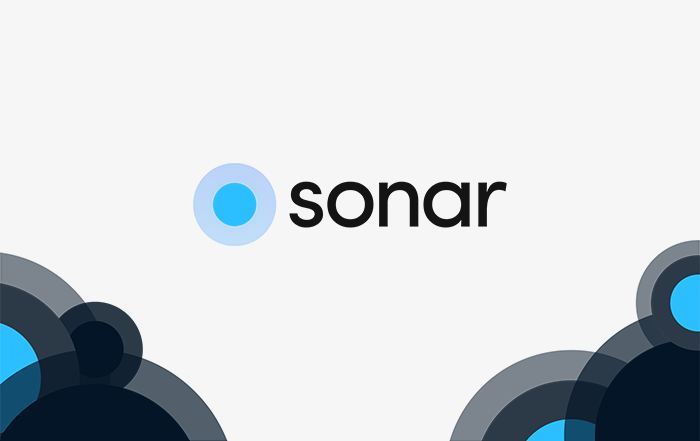The Benefits of Cloud-Based ISP Billing Software
In today’s rapidly evolving digital landscape, internet service providers (ISPs) face the challenge of managing their billing systems efficiently...

Cloud-based solutions, cloud-based security, and Software as a Service (Saas) are all terms that grow increasingly more common and are quickly approaching being the primary way of conducting business. While it’s all well and good to know that the cloud is the future of computing and service delivery, it’s essential to understand why Cloud Computing and Software as a Service are both currently increasing in usage and will continue to increase in usage.
Having Microsoft Azure as our Layer 0 provider assists Sonar in delivering a smoother, more reliable, and globally load-balanced solution. With Azure, Sonar can provide all their competitive cloud advantages directly to you, such as 24/7 access, scalability of services, and robust security.
Scalability, Redundancy, and Resiliency
Scalability in Sonar means we can offer a well-priced, faster, and more responsive experience for any size of an organization. For example, if an organization has multiple inline devices, designed to handle address lists and connection authentication, and were to try and authenticate numerous connections across several devices simultaneously, an on-premise solution would struggle, as it would need to queue up the requests and process them one-by-one across each device. With a cloud-based solution, the performance scaling allows Sonar to deploy a unique worker queue to process the requests on each inline device, meaning no round-robin and no waiting.
Redundancy in the cloud means more than one thing, but for the purposes of this article, we’ll be examining two central aspects of redundancy:
Finally, we reach Resiliency. Data resiliency represents similar functionality to a data backup, but in this case, acts as a mirror. The information on your instance is stored on another system exactly as you have it and can be quickly turned on and used in the event of a disaster. This means the integrity of your data – the whole instance – is resilient to being taken down by any single failure (in most cases, even multiple failures).
Securing your data
The most common – and a very reasonable – concern is in the face of not only data security but also physical security when using cloud-based software. Sonar takes advantage of Microsoft’s detailed and robust protections for the physical data centers and their secure hosting for your instance’s data. Your data will remain secured by the same principles that secure all other Azure customers.
Additionally, Sonar protects your data through several means above and beyond the security of our Layer 0 provider:
Rapid Convenience
Cloud-delivered services allow the application to be accessed from anywhere but will also allow faster access from anywhere. By implementing region-specific servers and dynamic hosting, access to your instance, your tickets, and your business is fast and reliable. However, convenience means more than quick access – it also means making things easy. With Sonar, documentation is being created, monitored, and updated on a routine basis, without any impact on your instance. Training videos, training documentation, and explanations on all the basic functions are included and available from within the instance.
Furthermore, cloud-based services increase your business’s profitability and efficiency, reducing upfront investments in equipment and upfront time in onboarding. By reducing your software’s time-to-use, you can proceed more quickly to getting customers added and billed.
Common Questions about using Sonar in the cloud
Your instance’s data is not only secured by Microsoft Azure’s secure hosting but is also physically secured by the robust and detailed protections in place for Microsoft’s data centers. In addition to this, all communication to your instance is encrypted, and you are the sole controller of access to your Sonar instance; you get to determine which individuals should be granted access, as well as the level of access, and can remove and restrict that permission at any time.
Sonar does not support recoverable backups of your instance data; however, we allow you to export a copy of all data contained in your instance, which can be performed manually or set to happen automatically. These data exports include your customer data, notes made on accounts, settings, user data, etc. While the data can be exported for use with other applications, there’s no way to import prior data into Sonar. If a data snapshot is required, so that a restore point is available for your Sonar instance because you are performing a mass data edit, get in touch with us as we can properly help you through this process.
If you choose to use another provider or competitor to Sonar, we’ll assist you in exporting your less sensitive customer data to make your transition easier. Despite being a cloud-hosted service, we’re not holding your data hostage.
If you would like to learn more about the advantages of streamlining your operation with automation and leveraging the cloud for capital savings, schedule a personalized demo with one of our experts. http://sonar.software

In today’s rapidly evolving digital landscape, internet service providers (ISPs) face the challenge of managing their billing systems efficiently...

15 min read
Learn why Sonar runs in the cloud, and why we don’t (and can’t) offer the ability for it to be run locally, and why this is a good thing for...

Sonar 0.6 is now available, bringing data usage tracking, usage based billing, a completely customizable customer portal, and much, much, much...